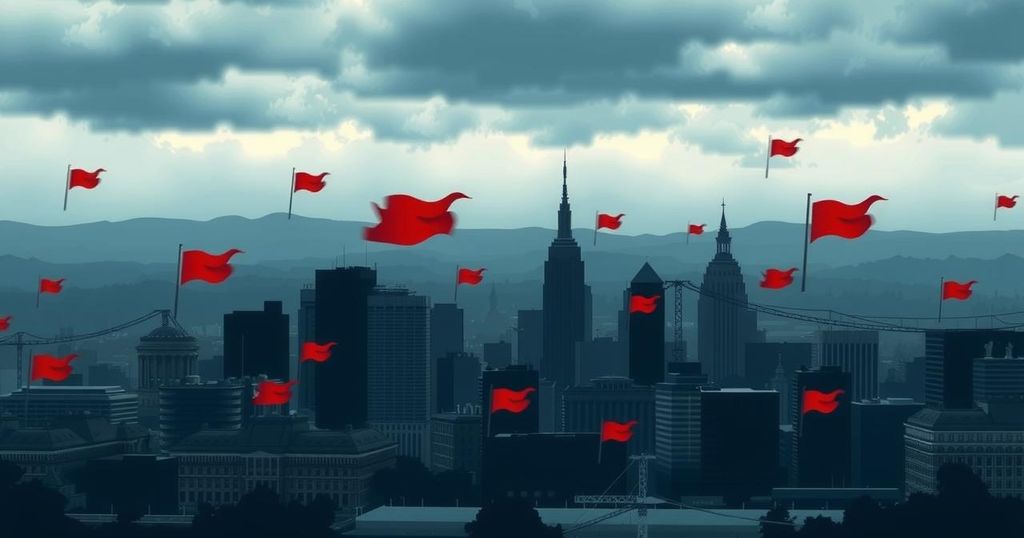Umaro Sissoco Embalo intends to seek a second term in Guinea-Bissau’s November elections amidst opposition claims questioning his presidency. Tensions escalate after ECOWAS withdrew its delegation, and Embalo’s first term legality remains contentious. Despite challenges, he claims two coup attempts against him and has dissolved the opposition-led parliament for inaction.
Umaro Sissoco Embalo, the President of Guinea-Bissau, has declared his intention to seek a second presidential term in the elections scheduled for November. This comes amid contention from opposition groups asserting that Embalo does not legitimately hold the presidency. The regional body ECOWAS, which recently aimed to mediate the country’s ongoing political crisis, has withdrawn its delegation due to threats against their safety.
Despite the controversial aspects surrounding his initial term, Embalo affirmed his decision at the Bissau airport after a visit to Russia, Azerbaijan, and Hungary. The Guinean constitution permits a maximum of two five-year terms; however, the opposition claims that Embalo’s first term should have already concluded. The president’s re-election bid threatens to heighten the already existing tensions in a nation plagued by coups since its independence.
Embalo won the presidency on November 24, 2019, but the opposition disputed the electoral victory, and the Supreme Court ultimately confirmed his presidency in early September 2020. The opposition argues that his term ended on February 27, 2023, instead of extending through September as ruled by the court. Amid these disputes, Embalo has set a new election date of November 30, insisting on remaining in power, although the opposition refuses to recognize him as president.
The opposition has vocalized plans for significant protests and strikes, although they are assessing the effectiveness of the ECOWAS intervention. Meanwhile, Embalo has indicated he successfully repelled two coup attempts within three years, the latest resulting in violence between government guards and prompting him to dissolve the parliament, which he accused of being ineffective.
Overall, the political landscape in Guinea-Bissau remains volatile, and the upcoming elections will be crucial for resolving ongoing disputes and addressing the country’s governance issues.
In conclusion, President Umaro Sissoco Embalo’s announcement to pursue a second term amidst significant claims against his legitimacy raises alarm over potential political unrest in Guinea-Bissau. The opposition’s refusal to recognize him and planned protests highlight the contentious political environment, especially with a backdrop of historical instability. The successful resolution of this situation may ultimately rest on the efficacy of interventions from ECOWAS and the conduct of the upcoming elections.
Original Source: www.tvcnews.tv






